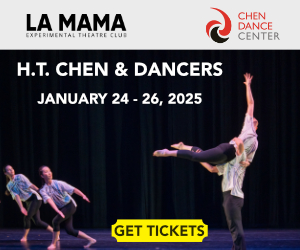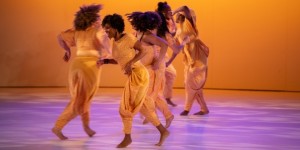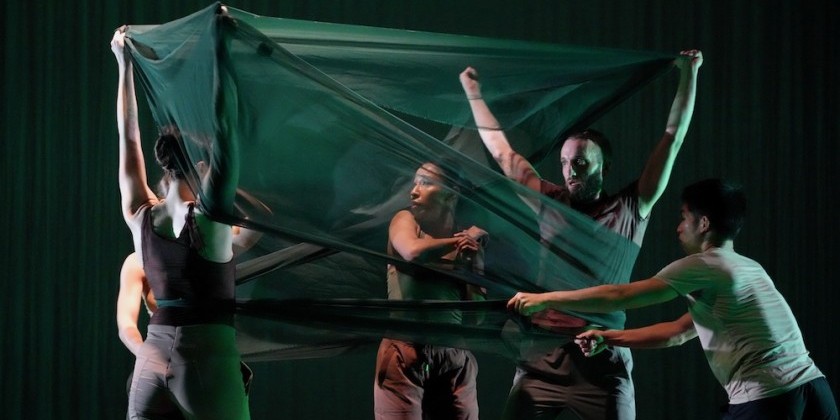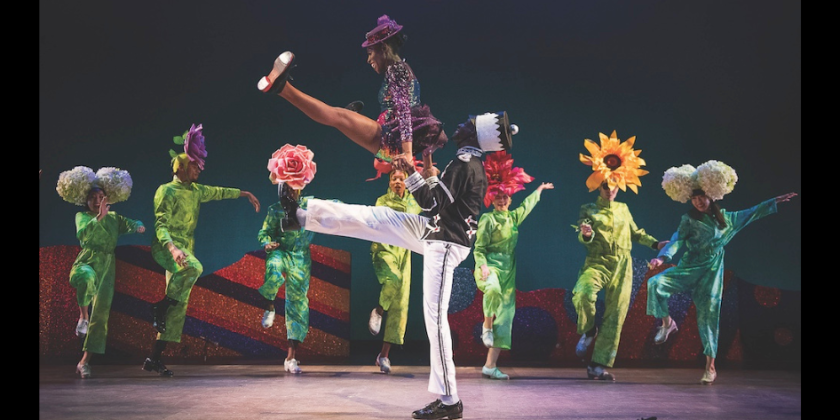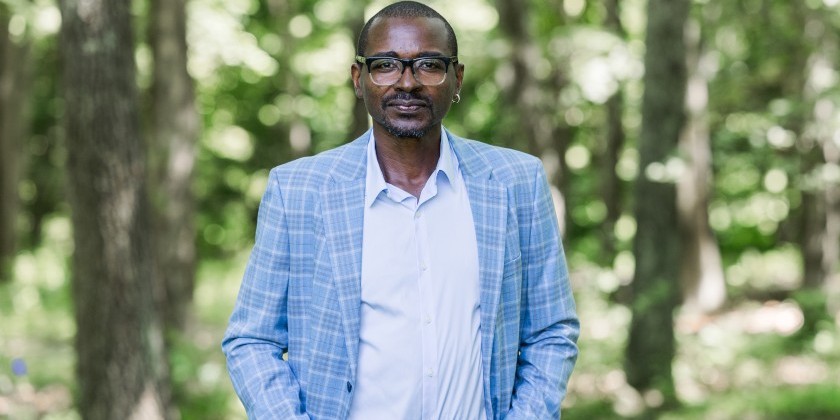DANCE NEWS: The New York Public Library for the Performing Arts Announces 2022 Dance Research Fellows
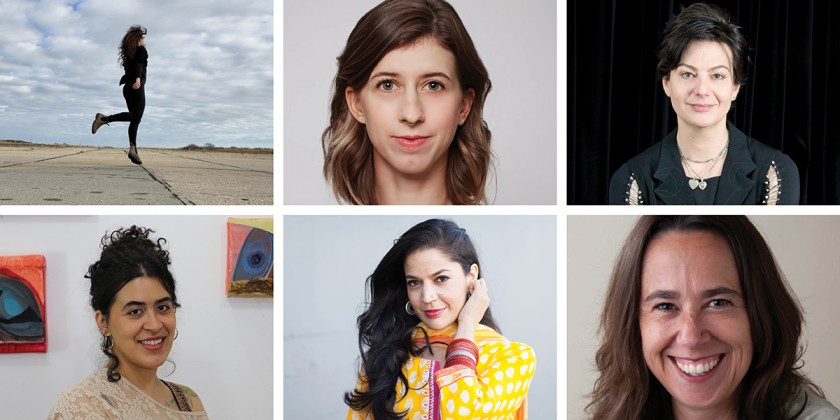
The Seventh Class of Research Fellows will Focus on the Topic of Dance and Ecology
The New York Public Library for the Performing Arts' Jerome Robbins Dance Division is pleased to announce the 2022 Dance Research Fellows, this year focusing on the theme of Dance & Ecology.
Juli Brandano, Rosemary Candelario, María de los Angeles Rodríguez Jiménez, Lindsey Jones, Richard Move, and Rachna Nivas will embark on a six-month fellowship at the Library for the Performing Arts to highlight the work of dance practitioners engaged with ecosystems and the biological interdependence of the natural world, and to generate projects that contribute to addressing the global responsibility of climate change.
In addition to supporting research utilizing the library’s resources and archives, the library will grant each fellow a $10,000 stipend, and organize a concluding symposium in 2023.
“The impact on our planet from global warming is at a crisis point and requires immediate action,” said Linda Murray, Curator of the Jerome Robbins Dance Division at The New York Public Library for the Performing Arts. “Although science will lead this effort, the arts can play a vital role through advocacy and creative response. Dance, in particular, is suited to this task as the instrument of the form is the human body. This year’s cohort of the Dance Research Fellowship comprises a range of projects that consider dance’s relationship to nature and our collective responsibility to the environment we inhabit.”
As the world faces unprecedented natural disasters due to a warming climate, the Jerome Robbins Dance Division at the Library for the Performing Arts seeks to position dancers to provide a new lens for climate change through its 2022 Dance Research Fellowship. A recent United Nations report signaled a stark forecast of “heatwaves, terrifying storms, widespread water shortages and the extinction of a million species of plants and animals.” The world is already experiencing what exactly this means, and how we will come to terms with it—dance and choreography can be just one puzzle piece in this new world.
The Jerome Robbins Dance Division Dance Research Fellows was created in 2014 to support scholars and practitioners engaged in graduate-level, post-doctoral, and independent research using the division's unmatched holdings. Past fellows include Harriet Jung and Reid Bartelme, Claire Bishop, Emily Coates, Silas Farley, Alastair Macaulay, Gus Solomons Jr., Pam Tanowitz, Tara Aisha Willis, and Netta Yerushalmy.
The 2022 round of the Dance Research Fellows is made possible through the generosity of the Doris Duke Charitable Foundation.
This year’s fellows are:
Juli Brandano

Inspired by the 1970s Land Art movement, Juli Brandano will explore the concept of “Dance as Land Reclamation,” as a way to think through how earthworks on ecologically devastated sites could rehabilitate the land. Brandano will use her fellowship to research archives of choreographers Anna Halprin, Elaine Summers, and others who made outdoor dances contemporaneously to the Land Artists in more community-based ways. Through this archival research Brandano will critically examine how dance can be used to “reclaim” land for indigenous populations, and create a new collection of site-specific improvisational scores providing a framework for how to “reclaim” land affected by coastline erosion and flooding, developed in part alongside local community members and dancers.
Juli Brandano is a dancer and choreographer based in Brooklyn, NY.
María de los Angeles Rodríguez Jiménez

In the Brazilian tradition of Candomblé, orixás are spiritual intermediaries within nature that connect, depend upon, and energize humankind and the divine—and the dance of the orixás is at the heart of this circle of energy. María de los Angeles Rodríguez Jiménez will begin compiling an extensive archive of videos, photographs, interviews, writings, and interpretation of the various dances of Candomblé from Salvador da Bahia, Brazil. Seeking a common thread between the diversity of dance tradition will educate members of the diaspora, and also communicate the mutual importance of ecological preservation through diasporic dance.
María de los Angeles Rodríguez Jiménez is an interdisciplinary artist born in 1992 in Holguín, Cuba. She received her BFA from The Cooper Union for the Advancement of Science and Art in 2015 and MFA in Painting and Printmaking from Yale University in 2020.
Lindsey Jones

Studying herbalism at Arbor Vitae School of Traditional Herbalism has taught dance artist Lindsey Jones how the body can heal itself with the help of plants. Jones will pair her learnings of traditional Chinese medicine, Ayurveda and other western practices with research into the work of dance artists like Eiko Otake, Jennifer Monson, Deborah Hay, and musical artists like Pauline Oliveros and Meredith Monk. Inspired by the Welikia Map, a mapping project that
pinpoints indigenous ecology of New York City before European colonization, Jones likewise will use her fellowship to provide a framework for regaining connection with the land and how our bodies can be at home.
Lindsey Jones is a Brooklyn-based dance artist and herbalist. She has performed with numerous choreographers and companies over the past decade including; Pam Tanowitz Dance, Dance Heginbotham, Merce Cunningham Trust, Kimberly Bartosik/daela, Caleb Teicher, Sally Silvers, Bill Young, among others.
Richard Move

Adding to a 20-year span of creating site-specific dance performances that activate natural environments while calling attention to ecological issues, Richard Move has been developing Herstory of the Universe. With their fellowship, Move will research the thawing permafrost to add to their body of work, and placing research of like-minded choreographic artists alongside new scientific studies through an essay, accessible dance film, and workshop.
Richard Move, Ph.D., M.F.A., is a TED Global Oxford Fellow, Artistic Director of MoveOpolis! and Assistant Arts Professor of Dance at New York University. Move's choreographic commissions include productions for Mikhail Baryshnikov and the White Oak Dance Project, two works for the Martha Graham Dance Company and a solo for New York City Ballet Principal, Heléne Alexopoulos.
Rachna Nivas

After studying South Asian Studies and Molecular Environmental Biology, Rachna Nivas made a pivot to become a full-time dancer and educator. Nivas brings both of these fields of study together with a project that draws from the exclusive collections of Indian classical dance at the Jerome Robbins Dance Division illuminating masters of Indian such as Balasaraswati, Rukmini Devi, and Uday Shankay, among others. Nivas will elevate the Eastern philosophies of how dance is consumed, perceived, and approached as a platform for social change.
Rachna Nivas is an artist, choreographer, activist, and educator in Indian classical dance, bringing a relevant voice to kathak. Called “...an expert in all sides of her art” by the New York Times, deemed “charismatic” and “revelatory” by the San Francisco Chronicle, and featured in Dance Magazine, Rachna is a fierce and passionate performer.
Rosemary Candelario

As part of her goal to make dance practice able to serve community, social, and survival needs, Anna Halprin worked with and even collaborated US-based butoh and butoh-related practitioners. Rosemary Candelario has been observing those artists who have been deeply influenced by Halprin and her work, such as Eiko & Koma, Body Weather Laboratory Los Angeles, Nature Moves, inkBoat, and will augment these studies using Halprin’s archive.
Rosemary Candelario writes about and makes dances engaged with Asian and Asian American dance, butoh, ecology, and site-related performance. She is the recipient of the 2018 Oscar G. Brockett Book Prize for Dance Research for her book Flowers Cracking Concrete: Eiko & Koma's Asian/American Choreographies (Wesleyan University Press 2016). Rosemary is also the co-editor with Bruce Baird of The Routledge Companion to Butoh Performance (2018).



